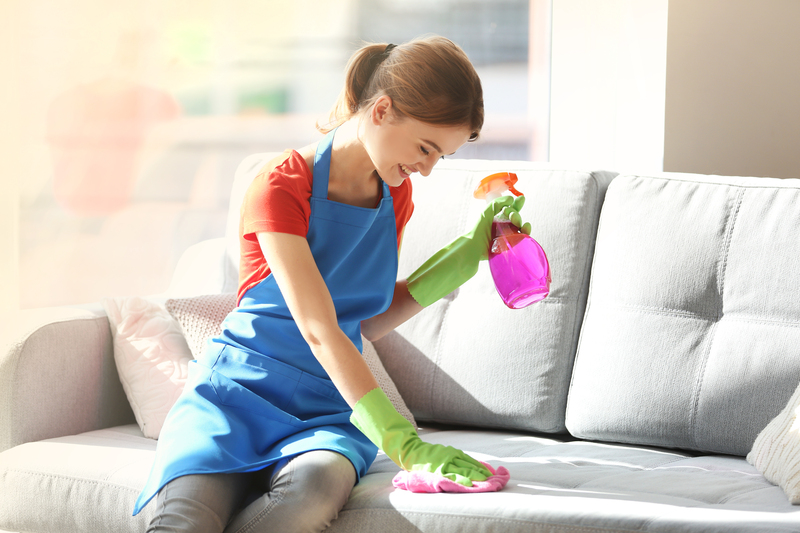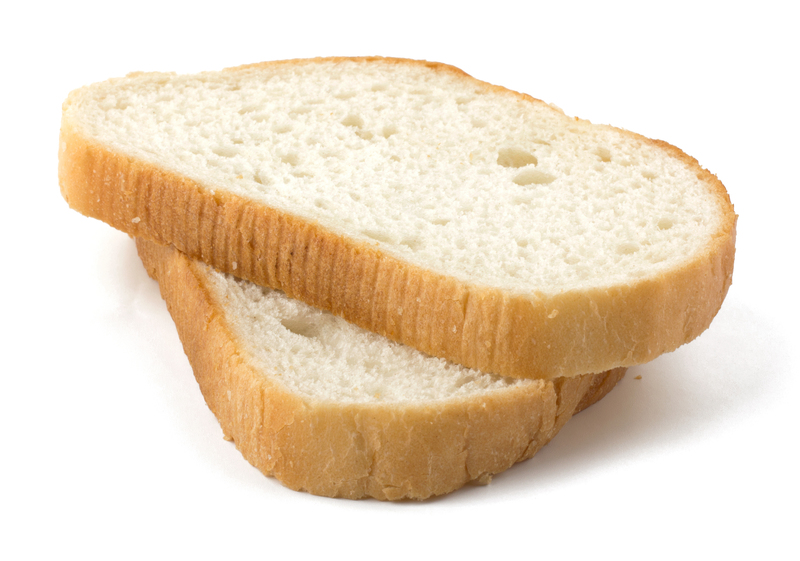The Ultimate Guide to Dissolving Hard Water Stains in Your Bathroom
Posted on 28/07/2024

As homeowners, we take pride in keeping our bathrooms clean and sparkling. However, one of the most frustrating challenges to maintaining a pristine bathroom is dealing with hard water stains. These stubborn marks are caused by minerals like calcium and magnesium that can build up on surfaces such as tiles, faucets, and shower doors.
Not only do hard water stains make our bathrooms look dingy and unappealing, but they can also be difficult to remove. But fear not, as this ultimate guide will provide you with all the information you need to dissolve hard water stains in your bathroom effectively.
What Causes Hard Water Stains?
Before we dive into the solutions, it's essential to understand what causes hard water stains in the first place. As mentioned earlier, these pesky marks are caused by minerals found in hard water. These minerals can be present in your household water supply due to factors like the type of soil in your area or the source of your water.
When hard water comes into contact with surfaces, it leaves behind mineral deposits that over time form unsightly stains. These stains are not only an eyesore but can also lead to damage if left untreated for extended periods.
Now that we know the cause let's explore some tried and tested methods for removing hard water stains from your bathroom.
1. Vinegar Solution
Vinegar is a popular household ingredient that has been used for cleaning purposes for centuries. Its acidic nature makes it an excellent solution for dissolving hard water stains without damaging surfaces. To use vinegar to remove hard water stains:
- Mix equal parts of white vinegar and warm water in a spray bottle.
- Spray the solution onto the stained surfaces and let it sit for 5-10 minutes.
- Use a soft-bristled brush or cloth to scrub the stains gently.
- Rinse thoroughly with water and dry with a clean cloth.
2. Lemon Juice Scrub
Lemon juice is another natural alternative to harsh chemicals for removing hard water stains. The citric acid in lemon juice breaks down the mineral deposits, making it easier to scrub them away. Here's how to make a lemon juice scrub:
- Cut a lemon into half and sprinkle salt on one of the halves.
- Scrub the stained areas with the lemon half.
- Rinse with water and dry with a clean cloth.
For stubborn stains, you can also mix lemon juice with baking soda to create a paste and apply it directly to the stains before scrubbing.
3. Commercial Cleaners
If natural remedies are not cutting it, you can also opt for commercial cleaners that are specifically designed to remove hard water stains. These products contain ingredients that effectively break down mineral deposits and leave surfaces looking sparkling clean.
When using commercial cleaners, be sure to carefully follow the instructions, as some products may be too abrasive and can damage certain surfaces. It's always best to test the product on a small, inconspicuous area first before using it on larger surfaces.
Pros:
- Natural remedies like vinegar and lemon juice are affordable and readily available.
- They are safe for use in homes with children or pets.
- Using natural solutions is better for the environment compared to harsh chemicals.
Cons:
- Some hard water stains may require multiple treatments, which can be time-consuming.
- If left untreated for too long, hard water stains can permanently damage surfaces.
- Commercial cleaners may contain strong chemicals that can irritate skin and eyes if not used properly.
Tips:
1. Prevention is key when it comes to tackling hard water stains. Consider installing a water softener system in your home to reduce mineral build-up in your water supply.
2. Wipe down surfaces after each use with a squeegee or towel to prevent mineral deposits from drying up and forming stains.
3. For shower doors, applying a coat of car wax can help prevent hard water stains from sticking, making them easier to clean.
Takeaways:
1. Hard water stains are caused by mineral deposits in your water supply and can damage surfaces if left untreated.
2. Natural solutions like vinegar and lemon juice are effective in removing hard water stains without causing harm to surfaces.
3. In some cases, commercial cleaners may be necessary for heavy or stubborn stains.
Conclusion:
Dissolving hard water stains in your bathroom doesn't have to be a daunting task. By using natural remedies or commercial cleaners correctly and taking preventative measures, you can easily keep your bathroom free from unsightly marks. Remember to always follow the instructions carefully and test any product on a small area first before tackling larger surfaces. With these tips and tricks, you can say goodbye to hard water stains and hello to a sparkling clean bathroom.





